Nadine Noor, Mya Mehmi and Ryan Lovell reflect on ten years of Pxssy Palace
Timi Sotire speaks to the current organisers behind Pxssy Palace to discuss how they have shaped the club industry and where, after their ‘Last Dance’ earlier this year, they are going next.
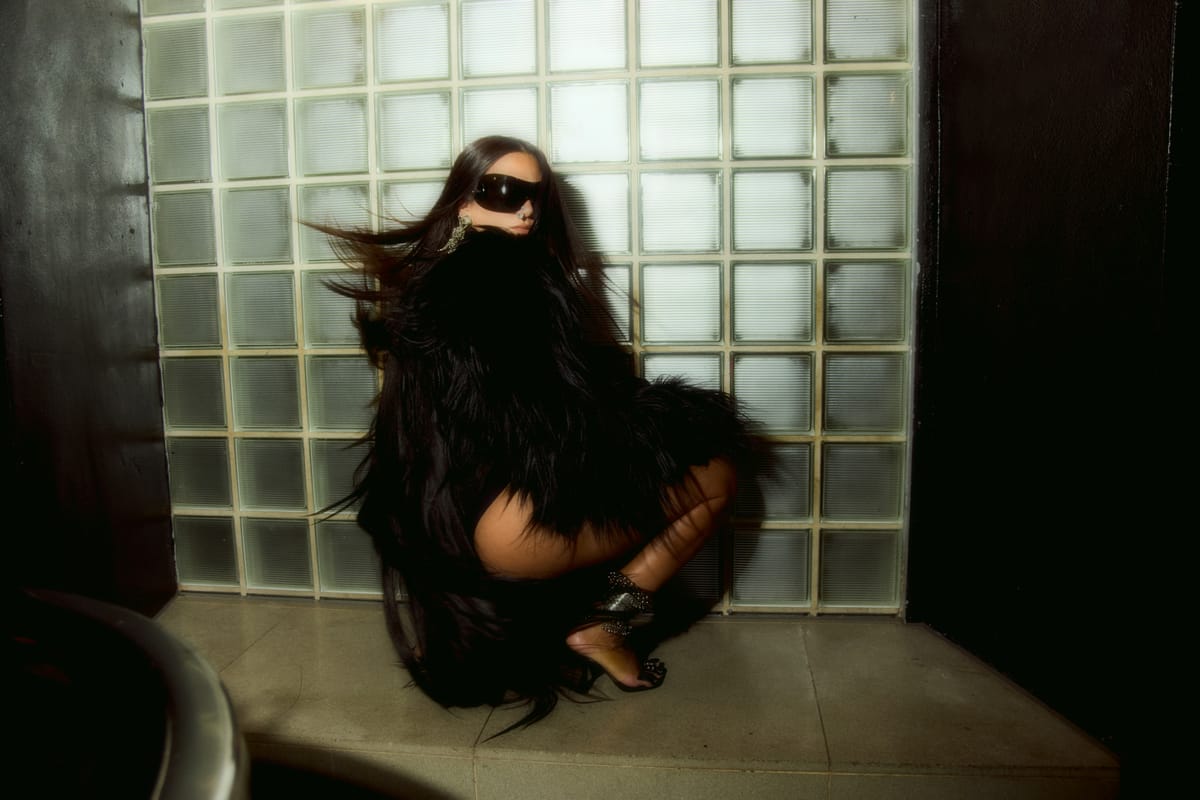
Words by Timi Sotire
It was a weekend in the mid-2010s. Flatmates Nadine Noor and Skye Barr were throwing a house party in their garden. It wasn’t their first; they’d been doing this for a few months now: transforming their three-story ex-council flat into an alternative dimension, covering the walls in tinfoil, putting glitter in the bathtub, gazebo stood proudly in their little garden. Silver balloons drifted through the smoke of machines borrowed from XOYO, curling around clouds of weed exhaled by scantily clad friends dancing to music spun from DJ decks. There was probably someone sprawled out on Nadine’s pink sofa, too. The flat, untouched since the ’90s and crumbling at the edges, still had its charm. “It’s a pussy palace in here,” one friend exclaimed when seeing Nadine’s cat and its newborns in the Bacon Street residence.
Ten years later, the party has outgrown its East London origins, selling out Colour Factory, collaborating with Boiler Room, and playing Glastonbury. Its offbeat name has stuck, and Pxssy Palace (PP) has become the face of modern queer radicalism through nightlife, continuing in the tradition of LGBTQIA+ ancestors who established the club as a refuge and home for resistance, a sentiment Noor has not forgotten. “Even if you have never been to the club before, you have been impacted positively by queer, Black, and Brown underground culture. Through your clothes, music, social change, and dancing. That is the legacy that we’re a part of.”
The idea of ‘partying as resistance’ isn’t new, but resurfaced last decade as the queer, BIPOC roots of dance music returned to mainstream awareness. It’s a history Noor wanted to honour; alongside “many people who have contributed in small and large ways. Everyone who has worked with us has made an impact”, including Kesang Ball, Munroe Bergdorf and Bernice Mulenga. PP’s themed nights have given London’s queer BIPOC community a space to be free, taking part in “some form of drag, and the chance to play a different persona for the night.” Noor continues, “I sometimes call PP ‘reverse conversion therapy’, because you go in feeling a little anxious, or to support a friend, and then by the end of it, you’re like, 'Fuck, I just know who I am.'”
Shortly after hosting the main stage at London’s Maiden Voyage festival, Pxssy Palace co-founder and current director Noor is joined by current teammates Ryan Lovell and Mya Mehmi to commemorate the brand’s tenth anniversary - reflecting on its past, present, and future.
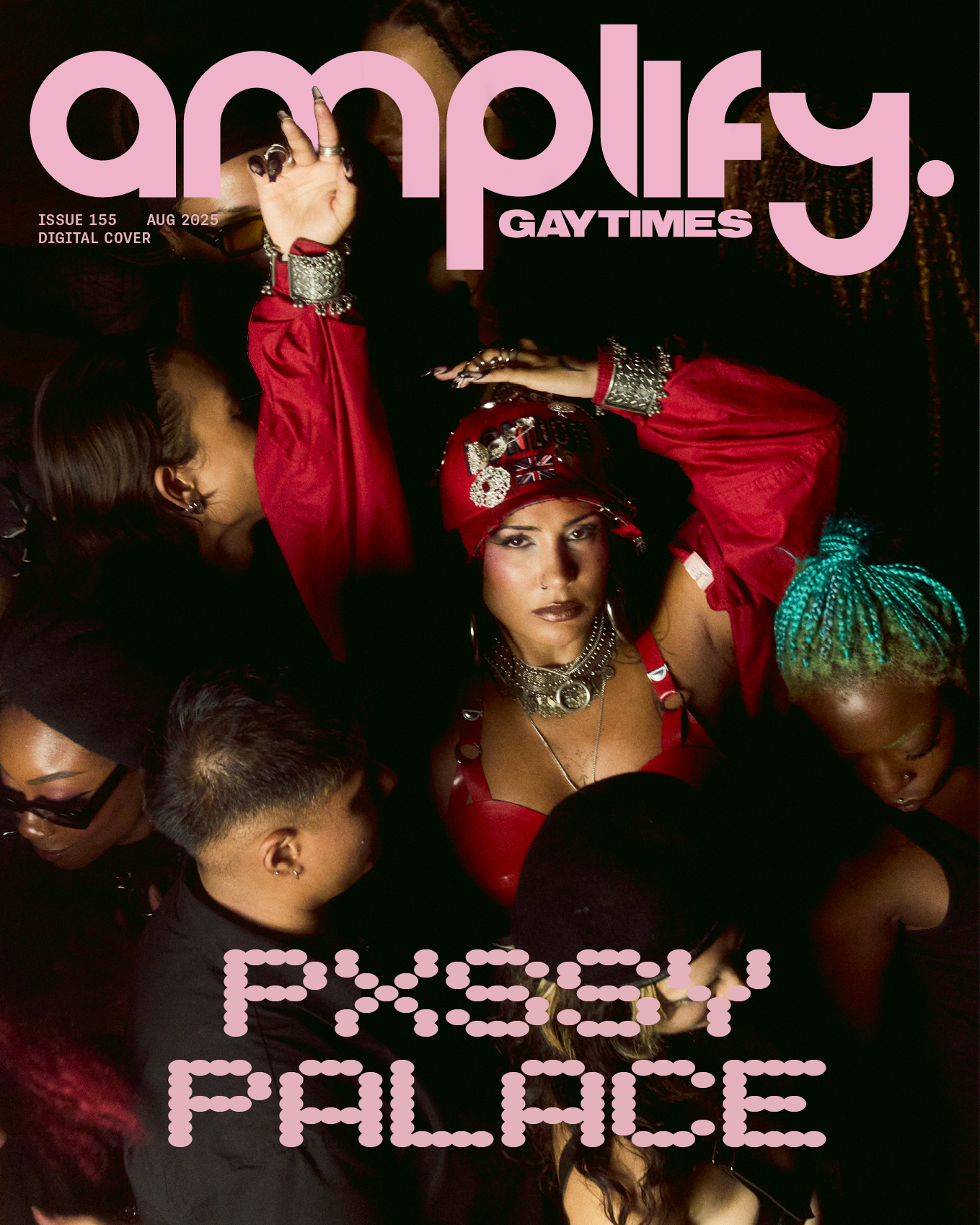
When PP started in your East London flat, it was open to everyone. Why did you decide to make PP a queer POC-centred space once it became public-facing?
Nadine: I thought, if I’m going to take this public, I need to have a reason. At the flat, we were just partying, for what? I had a fire underneath me, an anger and a love and a passion; there's a lot of injustice in the world, and historically, queer people have come together and gathered under the safety and cloak of nightlife. I wanted to continue that legacy through my own experience.
Why was it important to make Pxssy Palace a ‘safe space’ with PP Support (originally called Badge Bitches)?
Nadine: It took me a long time to admit that a lot of the ideas I brought forward set a new standard, because technically, PP is not the first. If you look at the legacy of queer nightlife, people had manifestos and community-led security in the 80s. I was also in Facebook groups, witnessing this mass global, queer, Black, Brown radicalisation happening online. I wanted to create that safety I found in the Facebook groups manifest into the physical space because we needed it. We can't trust the venue. We can't trust their security. So having our people that the guests, the audience, the dancers, could turn to was important. We were not the first to do it in London, but we pioneered it for sure.
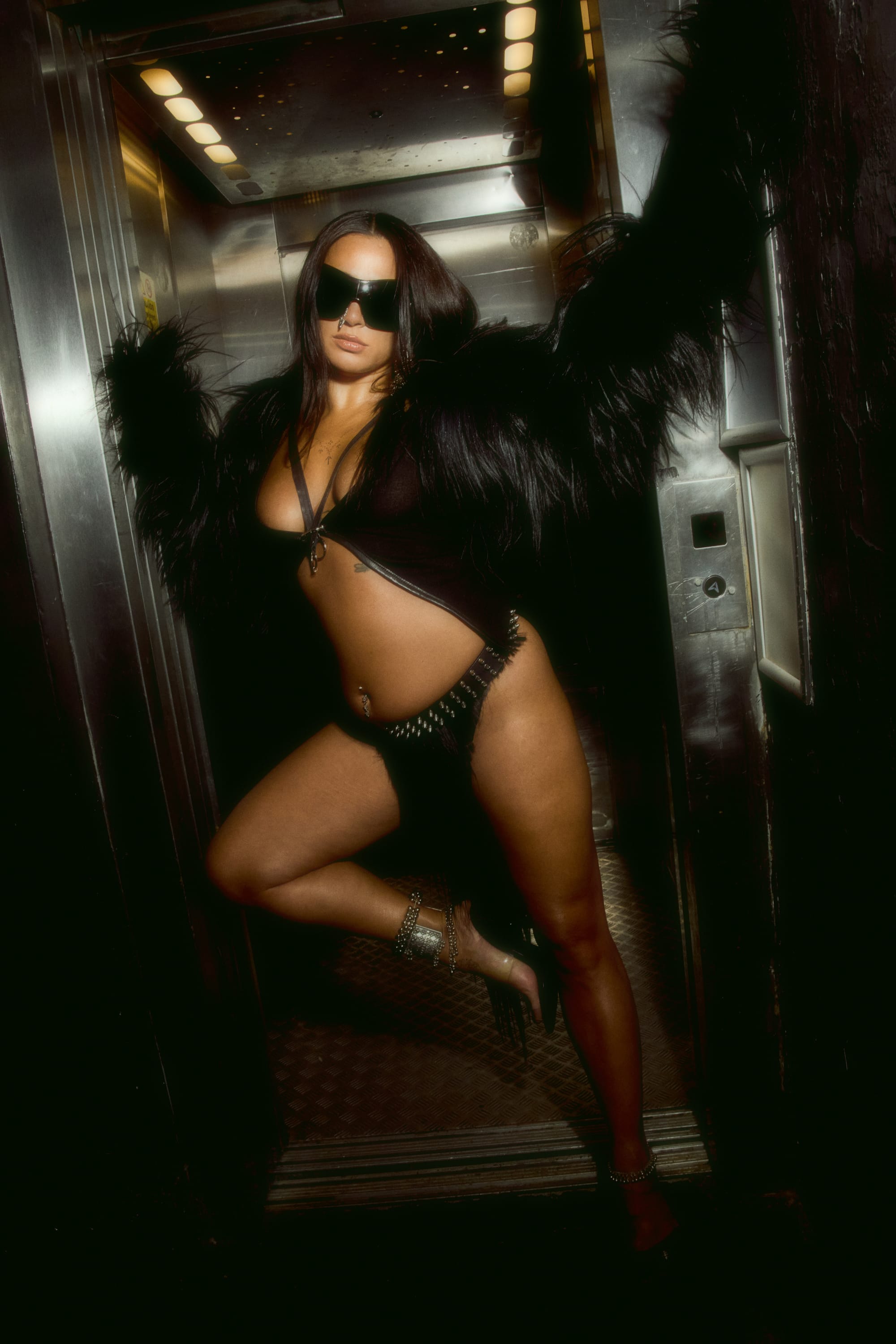
What was it like to work as PP support?
Mya: Honestly, I got to reclaim my power back from men by being like, “You gotta leave. You gotta leave. You gotta leave.” At one point, PP brought in a crowd of people there for the wrong reasons. There was a lot of groundwork that had to be done for years, of standing on business, kicking people out when they violated the policy, reviewing and pushing policy, releasing different statements. It was years before it became the space that it is now.
I think the idea of a ‘safe space’ proliferated so much last decade that now, it's either deemed symptomatic of the ‘snowflake generation’, or deployed as a marker of progressiveness without actually being enforced.
Nadine: At that time, it felt like no one was doing anything about sexual violence within the club. It was so radical to have a policy. Now it's standard, or not even enough, because what does a piece of paper do? At year one of PP, I realised that a manifesto doesn't actually do anything to stop the sexual violence happening in the space. So we needed something more. So the Badge Bitches(/PP Support) came, and they wore a massive badge, and you would go to them if you needed support.
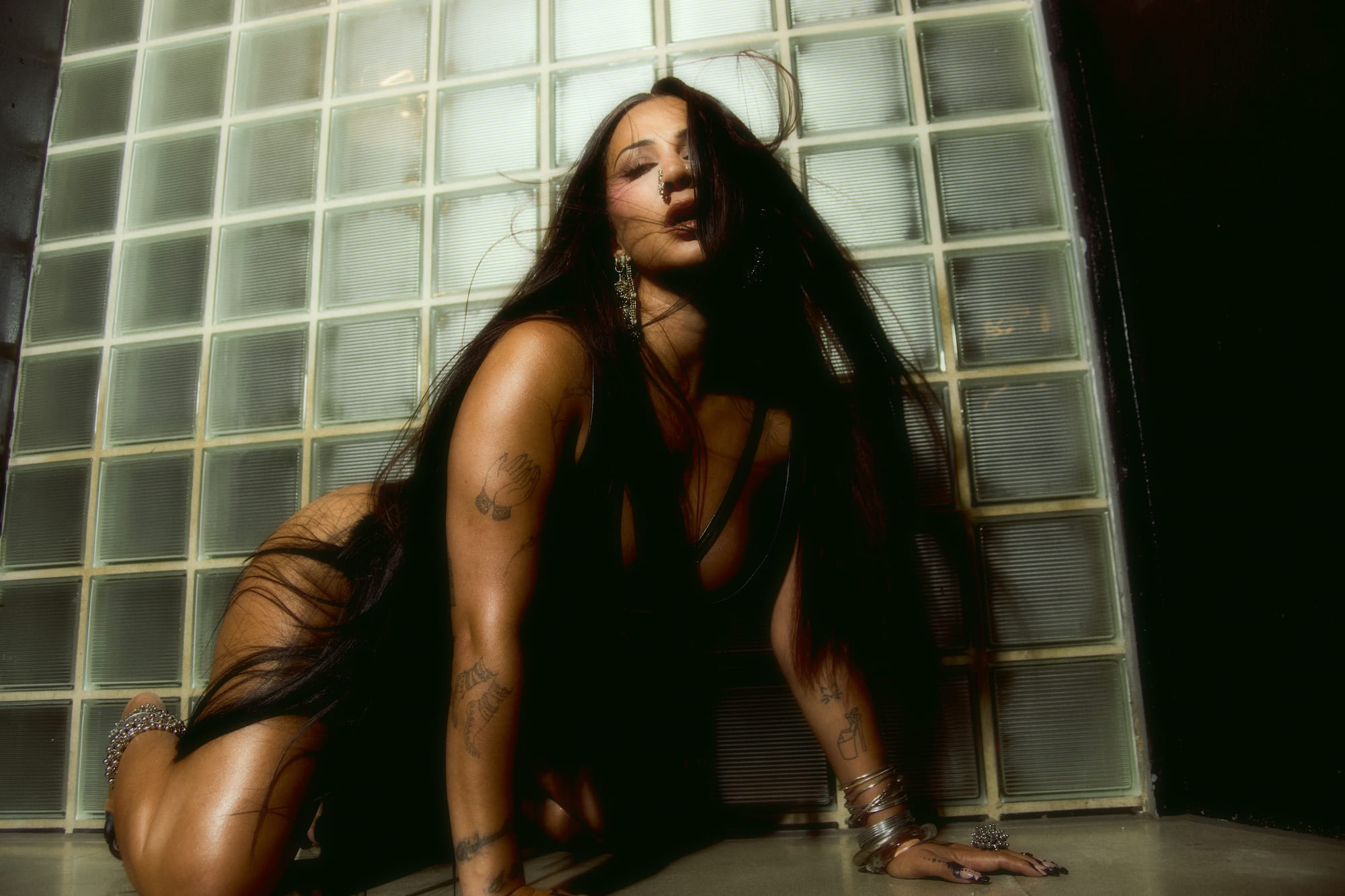
I know your door policy, deemed ‘strict’ by those not in the community, has gone viral more than once. To my knowledge, the first time was around 2022. What was it like seeing your ethos critiqued?
Nadine: It surprised me at first, because we had been doing this since 2019, I think. It was frustrating, overwhelming, and stressful to get that much attention from an audience that doesn't know you. And they don't want to come anyway. They don't want queer, trans people of colour in their space. But then, when we create a space that is our own, they're not happy with that either. It doesn't make any sense. I love the statement that we put out on that, because it was basically us saying, “We don't have to explain it to you, and it's a system that works”.
Other parties serving the community have come and gone in the past 10 years. Why do you think Pxssy Palace has survived when others have not?
Nadine: God, that's such a good question. I have no idea.
Ryan: There is a real problem-solving approach that PP had at a time when a lot of things weren't happening in nightlife the way they are now. And I think when you're creating solutions for people from an authentic place, it stands the test of time.
Nadine: I guess I would say it's because I stood the test of time. I was going to not have anything to do with it anymore. And then, post-lockdown, I applied for the Developing Your Creative Practice Fund, and I used that money to train myself. I felt like there was still a problem to be solved. It's because of Mya and Ryan as well, the love and sisterhood that we've created. It’s the energy and passion that they've put into it.
In February, Pxssy Palace had ‘The Last Dance’. How did that go?
Ryan: It was fabulous. Such a wonderful experience. It sold out, and everyone came through; a whole family affair. It went really well.
Mya: There were definitely some emotional moments in there for me, and I tried my best to really take it in. But at the same time, the future is open right now and we’re not sure what the next steps are. So it's a ‘to be continued’, potentially. I didn't know how to feel. Maybe I'm in denial.
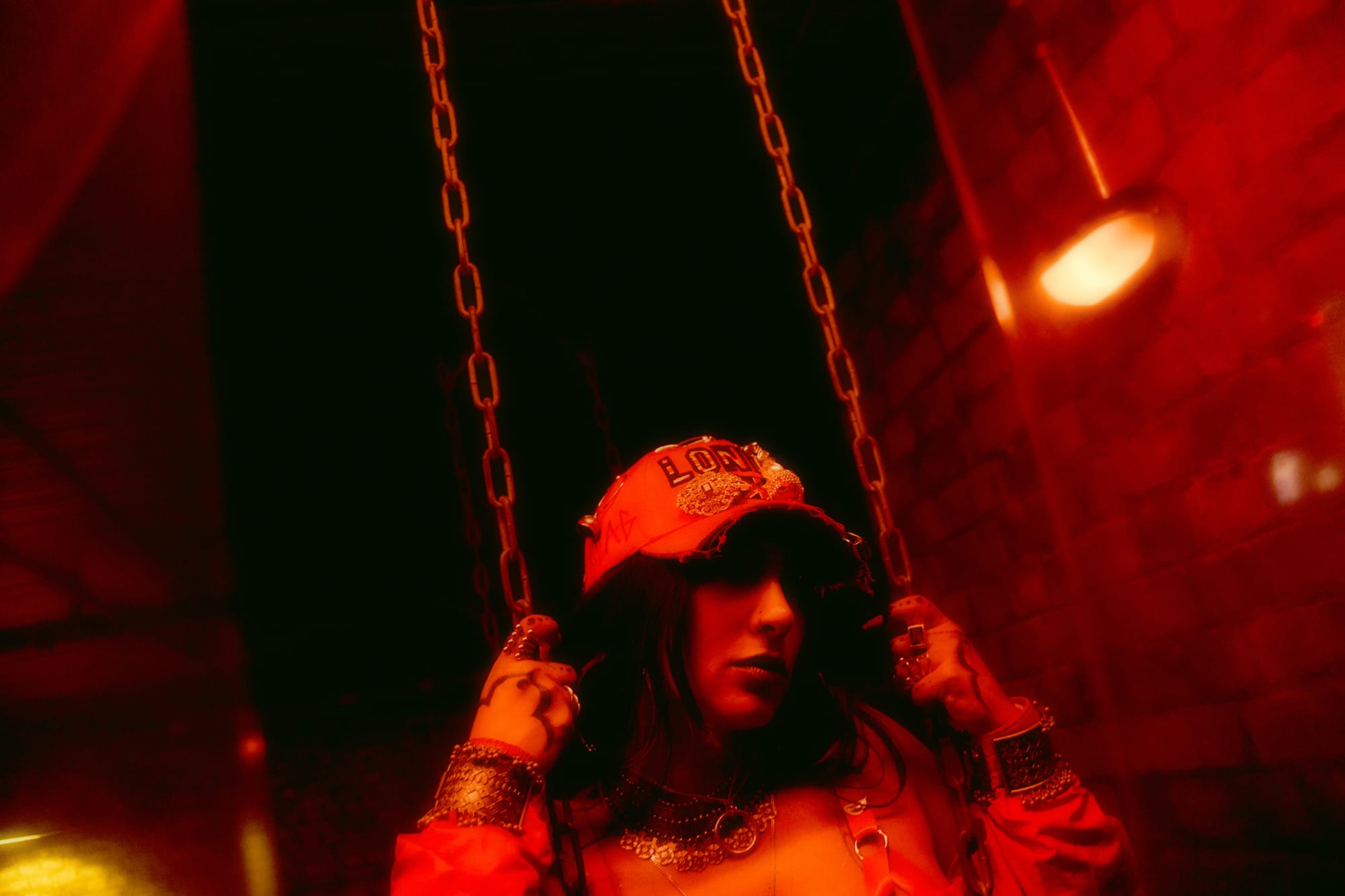
And why was it the last party? Is there anything on the horizon?
Nadine: It was the last party for lots of different reasons. Doing the parties at this time, in this economy, was too extractive, and it was taking a lot out of me, trying to survive and keep everything afloat. Before, we'd sell out quickly. And now, across lots of parties, people are buying tickets last minute because they don't want to commit to something. That was just too anxiety-inducing for me.
Ryan: It was becoming a bit like a hamster wheel. And we weren’t taking the time tosit back, see what we've done, and see what we want to do going ahead. We need the opportunity to re-strategise and take a bit of a breath.
Mya: PP has always responded to the needs of the community, and right now, the world has shifted quite a lot. PP has always been at the forefront of the ‘partying and joy as resistance’ mindset. But now, we need more than that. We need to be doing something other than parties right now.
Nadine: Yeah, Mya. Joy is resistance, but that’s not enough. We’ve moved past that. What do we all love about partying? We can connect, we can dance, we can listen to good music. We can share ideas. Can we do all of the things that we love in a party, in a less dissociative place, where the priority isn’t alcohol? Because even if you're there as a sober person, the venue you’re in, their business model is to sell alcohol.
There's been a moral shift, and it's a scary time. Sometimes, dancing away our problems is all we need, but we also need real collective action.
Nadine: The right is organised. We're not organised enough. For people who have never been involved in direct action, we need to get them in a space where they can actually talk. If you look throughout the years, the dance has always been a place where that's happened. But I wonder how fast we could organise if we take away some of those elements that I think distract us.
In 10 years, what do you want Pxssy Palace to be remembered for?
Mya: I want it to be remembered as something that tangibly changed the face of nightlife, or at least, was at the forefront of big change. It just can't be forgotten. I think if it changed your life in the way that it changed so many of ours, that is something that you can't forget.
Nadine: I don’t know what to say. I guess I don’t want it to be remembered; it feels like you’re saying in ten years we will be a thing of the past. I want it to be alive and existing. Even if myself, Mya, and Ryan don’t have anything to do with it, I want our energy to continue on. In ten years, we won’t be looking back, but looking forward.
PHOTOGRAPHER: KWAME DAPPA, PHOTOGRAPHER ASSISTANT: SAMI ZUBRI, MUA: SIMMI VIRDEE, HAIR: SAM KOROMA, STYLIST: JADZIA SCOTT, STYLIST ASSISTANT: ALYSHA PATEL
GROUP SHOTS/PXSSY PALACE GIVES THANKS TO: Mya Mehmi, Shakaiah Perez, Tamaki Flynn, Amani Cosmo, Chanti Thompson, Michelle Jama, Leila Davis, August, Mary Oluwa, Roma, Gagan Gill, Lewis G Burton, Anairin Kaines
